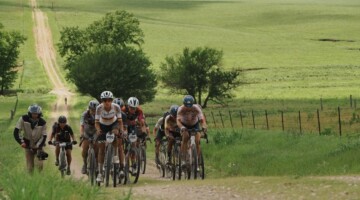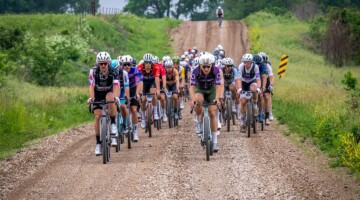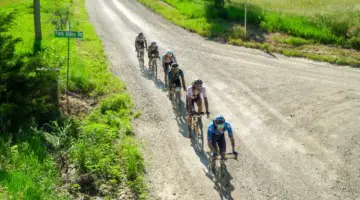Getting injured sucks, there’s no way around it.
Although most of us are not professional athletes, we are passionate about cycling and the role the silly hobby plays in our health and well-being. Taking that away via injury or extended illness is tough to deal with.
In my athletic career, the only thing I have really excelled at is getting injured. First, it was a blown-out knee that kept me from playing high school basketball, then it was back pain that has now kept me from racing cyclocross for the past three seasons.
If you follow the site closely, you have probably noticed that I am a sucker for athletes like Courtenay McFadden and Lauren De Crescenzo who have bravely overcome tough injuries. Now you know why.
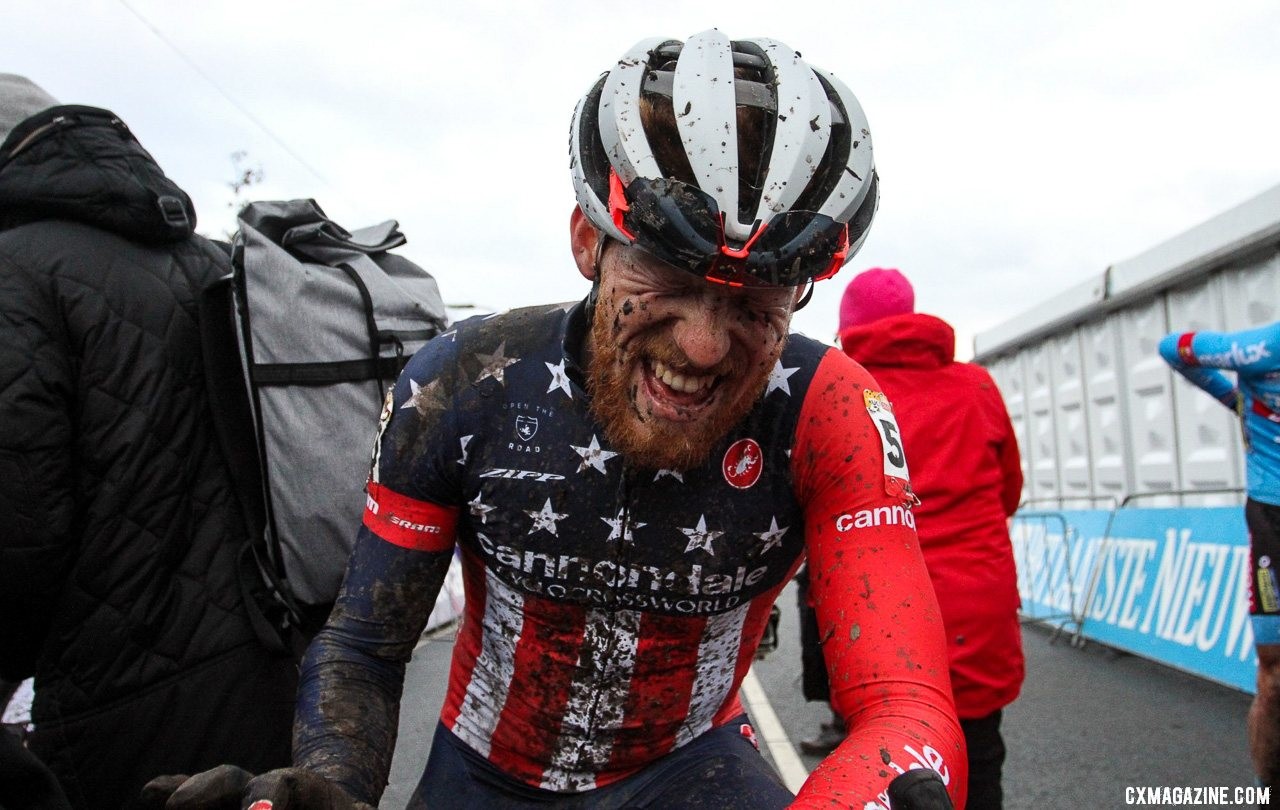
Injuries were an unavoidable part of last cyclocross season, 2019 Hoogerheide UCI Cyclocross World Cup. © B. Hazen / Cyclocross Magazine
I’ve had the idea of writing this piece about how to deal with injury in the back of my head for a while, and now with this season on the shelf thanks to a thyroid issue, I felt motivated to write it.
Hopefully, you, the reader, will avoid getting injured for an extended period of time, but even as we saw last cyclocross season, even the best athletes in our sport get hurt from time-to-time. And if you are blessed with good health, I hope this column sheds some light on the challenges the injured athletes in our cycling communities are going through.
These are my thoughts and experiences. I do not have a degree in sports psychology or physiology, but what I do have is a depressingly abundant amount of personal experience being injured. So, take it as you will.
The Toughest Part
Saturday was supposed to start a block of four gravel races in five weeks for me. To prepare, I spent 10-plus hours a week cooped up in the basement riding the trainer and watching Law and Order reruns.
Scrolling through social media on Monday reminded me of what I missed, with a perfect spring day gracing southwest Wisconsin at the Dairy Roubaix. I, on the other hand, was gassed after an hour on the trainer thanks to my condition.
It was a tough reminder that while you are injured and unable to ride, the world is still going on without you. Races are being raced, rides are being ridden and friends are posting about beautiful days on the bike on social media. Unfortunately, everyone else does not stop having fun while you cannot.
That feeling is incredibly isolating and lonely.
Cycling is a great hobby because a community comes with the feeling of joy from riding. However, that community is built around the activity of riding. If you cannot ride, even if you head to an event or a race, you are still left out of the activity that holds the community together.
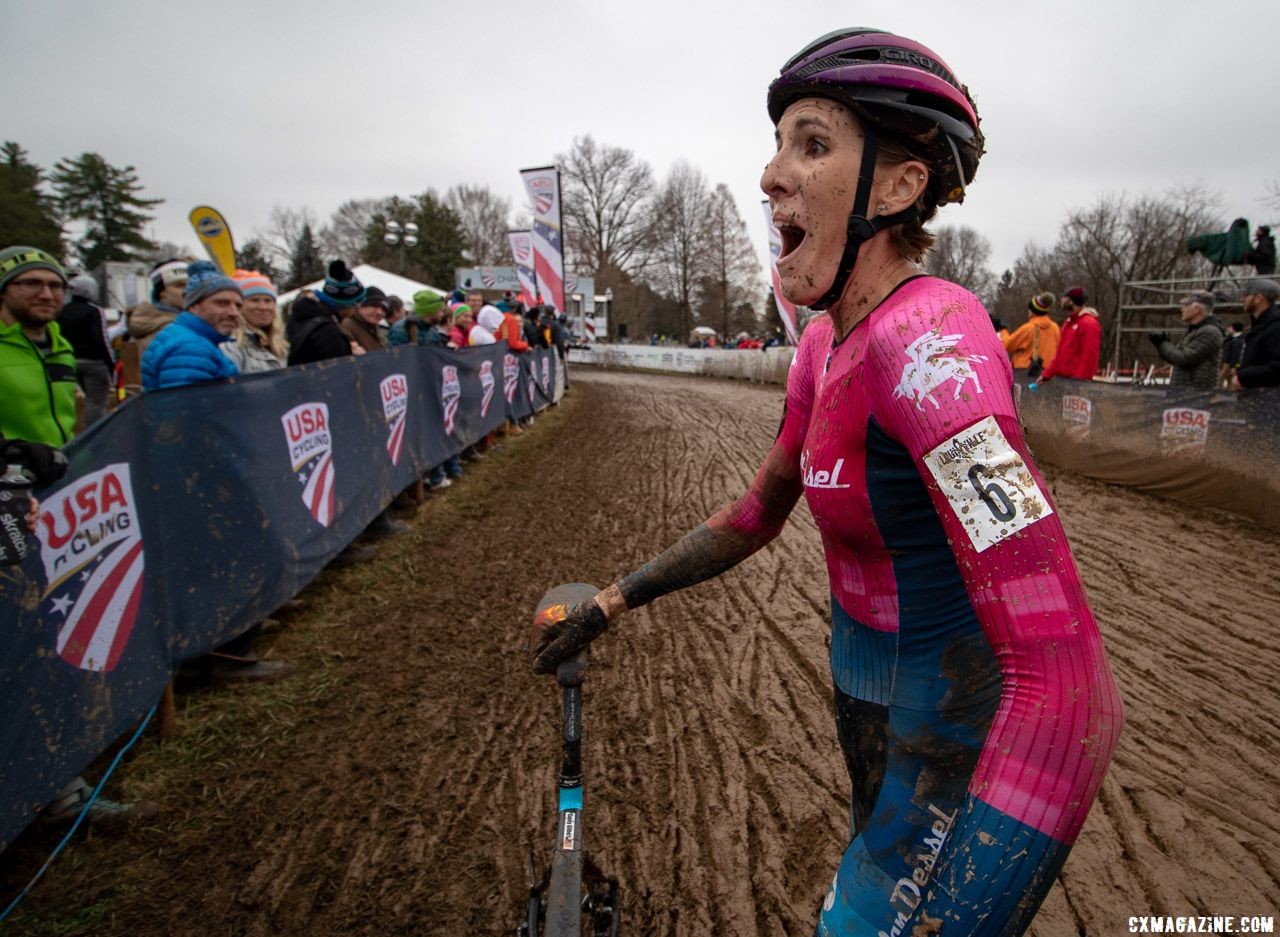
Community is an essential part of cycling. Elite Women. 2018 Cyclocross National Championships, Louisville, KY. © A. Yee / Cyclocross Magazine
There are ways to deal with the feeling of isolation that happens when you are injured, which I will go into in a bit.
If you do know someone who is out for an extended period of time, definitely do not forget about them. Reach out, invite them out for a beer. I guarantee they will appreciate your consideration.
First Off, Address the Issue
There is no question that cycling culture is obsessed with the idea of suffering. Every year at the spring classics or Tour, we celebrate the story of a rider who finished the race despite a bad crash.
Toughness is an admirable trait, but long term, the ethos of fighting through pain is more often than not, not good. Pain is your body telling your brain that something is not right. If you are hurt, if you are injured, listen to your body and get things looked at and fixed.
Injuries can get worse if they are ignored, so even though you can probably fight through the pain, go to the doctor and let a trained professional let you know the risks of not addressing your injury.
In my most recent case, I probably could have held off on taking meds and suffered through a month of gravel races, but with my resting heart rate, my body is telling me something is not right and losing future years of riding for a few months this summer is not a risk I was willing to take.
Option 1: Stay Involved…
Now that you have figured out what is wrong, then comes the hard part of healing, rehab and therapy. During that time, there are two ways to deal with the cycling world that continues to spin without you.
The first is to continue to be involved. Yes, you will not be able to ride your bike, but you can still be a part of your local cycling community, just in a different role.
If your team is hosting a race, volunteer to be race director or take on a bigger role. Go to your local race official clinic and work as an official for the season. Start your own race.
There are any number of things you can do to stay active in the cycling community. In 2016, I blew out my back on the day of the first race of the cyclocross season. I started taking pictures and writing race reports and announced a few local races as well. It was the racing that I love, but it was still a way to feel a part of the local cyclocross scene while not able to race.
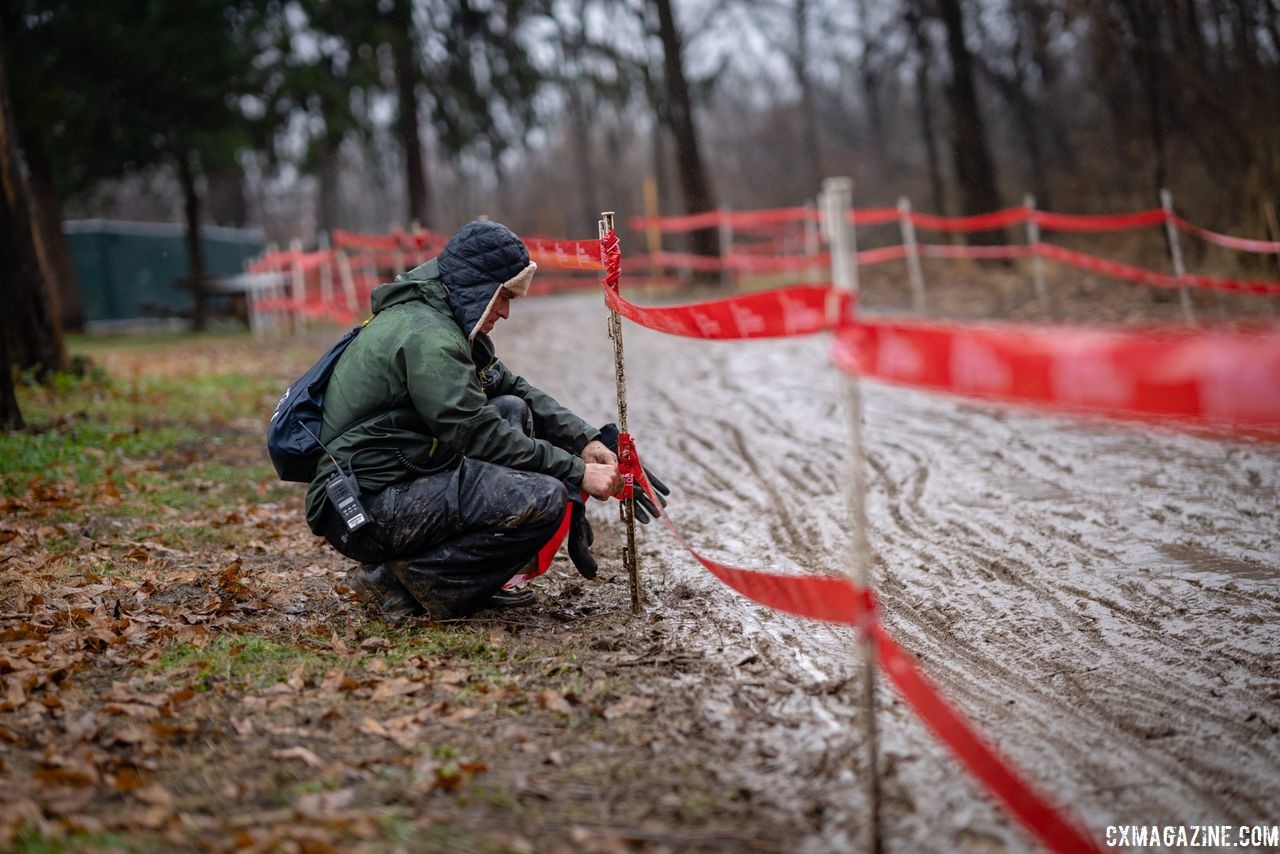
There are plenty of ways to stay involved when you are injured. 2018 Louisville Cyclocross Nationals, Saturday and Sunday. © Drew Coleman
You do not necessarily need to be “talented” to stay involved. You could just be a cyclocross superfan or volunteer at registration. And during gravel season, race organizers would likely love the help at an aid station, or you could just create your own unique twist on mid-ride refreshment.
Option 2: …Or Stay Away
My senior year of high school, my basketball coach offered me the chance to help with the team as a manager. After one practice, I just could not do it. I wanted to play so bad and not being able to do so was absolutely killing me.
Even though cycling is an adult hobby for most of us, sometimes the best way to deal with being injured is to just stay away. That is totally okay.
It is also a chance to focus on the many things that get neglected by our silly cycling passion. As Chris Mayhew Chris Mayhew has written, connect with those friends you neglect during cycling summers, read a book, focus on a new hobby, spend more time with your family.
Not only will these activities keep your mind off the cycling you are missing, they will help you reform bonds that can be difficult to maintain while traveling for bike events during much of the year.
Connecting with friends and family will also help to fill in some of the isolation caused by being injured.
Moving Forward: Focus on Next Season
Not every bike injury prevents you from riding your bike. A broken hand or collarbone sucks, but you should still be able to ride the trainer despite being hurt.
One thing that has worked for me during three missed cyclocross seasons is convincing myself that I can train for the next season. Fitness gains in November are not likely to last through the following season, but it is a way to stay hungry and keep riding in the face of missing your season.
You can also get industrious with it. A woman in our local scene brought her trainer to cyclocross races and rode outside the tape every week during the season. Staying in the community and staying fit, two birds with one bike trainer.
Zwift racing can be a good option for getting the race experience you are missing out on. I did two or three Zwift races each week this past cyclocross season, and it helped me stay motivated to ride when all external circumstances—hurt back, third-straight missed seasson—suggested otherwise.
Finally, Don’t Be Afraid to Get Help
The issue of mental health has been front and center in the cycling community after Kelly Catlin’s passing last month.
Feelings of depression are totally normal when injured or ill. If you are a cyclist, it is likely a major part of your life and one of the primary things that brings you joy. Taking that away can be devastating.
Do not be afraid to see a professional therapist to help you get through the difficult time.
This is especially true if you have already been diagnosed with a clinical mental health issue. Injuries can be the kind of event that makes depression worse, so be proactive and understand that it can take help to deal with the emotions being unable to ride can bring.
Hang In There
No question, injuries suck. Being unable to do the thing you love is a major blow, and the feeling of isolation from the cycling community makes it that much worse.
Fortunately, it is usually temporary. Focus on recovery and rehabilitation, and find relationships either in or out of the cycling community to help you take your mind off the crappy situation.
And if you are not hurt right now, do not be afraid to holler at your injured friends. They can definitely use the pick-me-up while dealing with a challenging situation.
Featured image: christopdesoto, used under a Creative Commons license.























